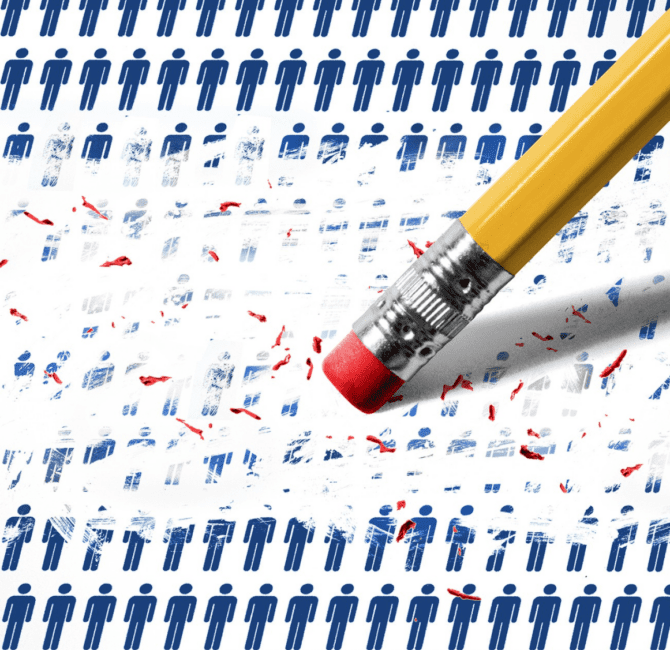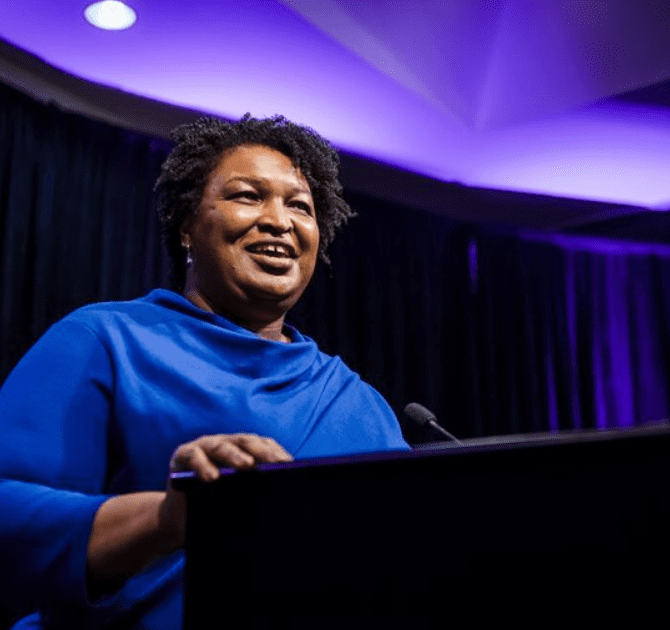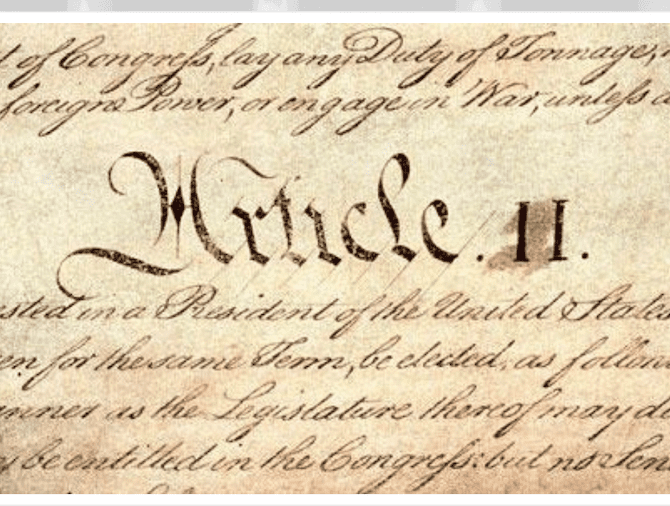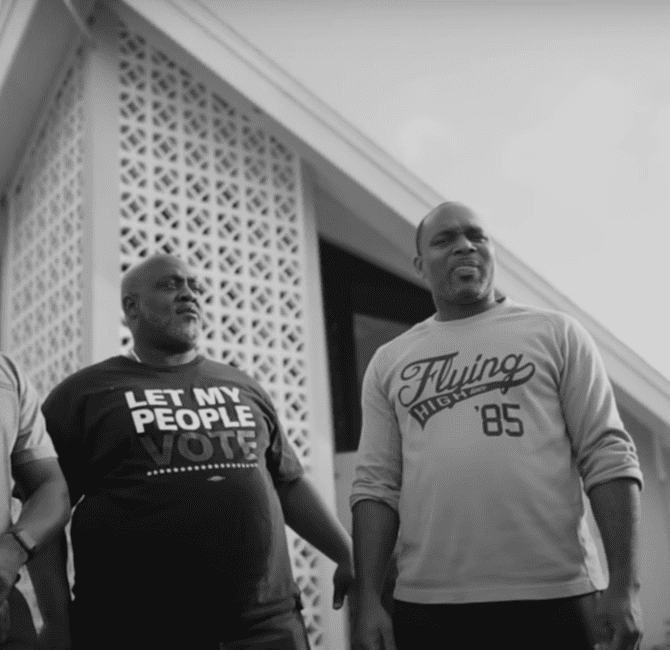Reformers Seek Sweeping Changes to Fortify American Democracy
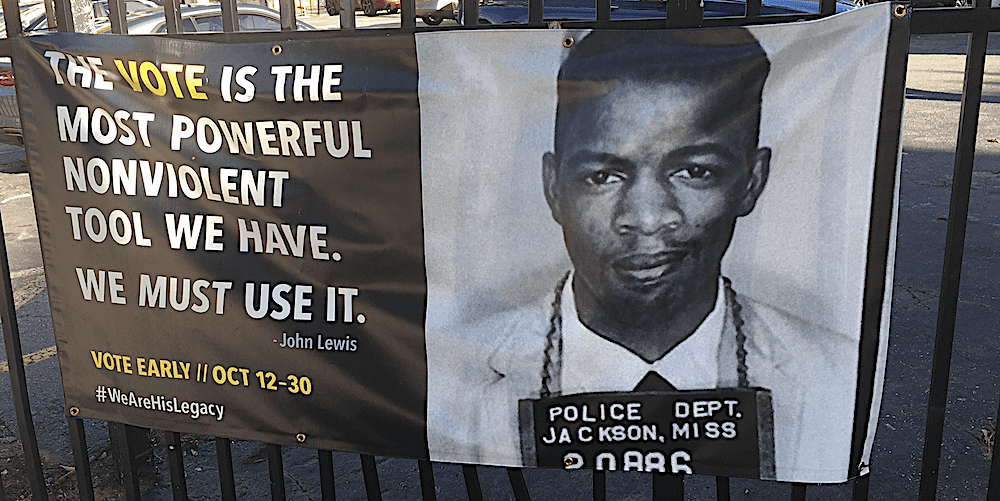
(Photo: Steven Rosenfeld)
The Trump presidency is over and the Biden presidency has begun. The 2020 election’s legacy will now turn to examining how the institutions and laws that govern voting can be fortified, after a bruising season where Trump attacked the process as illegitimate and enlarged the GOP myth of massive voter fraud.
Normally, after every presidential election, every sector involved in elections issues post-election reports and prescriptions. While Trump’s refusal to admit defeat has delayed that process, the emerging analyses and recommendations so far have two focuses. The first concerns the maze of laws and rules governing elections. The second focus is arguably harder to solve, as it concerns the personal and societal factors that allowed the narratives of stolen elections and underlying conspiracies to take hold among tens of millions of Americans—such as 15 percent of Republicans who still support the storming of the Capitol on January 6.
“This anger on the part of some people has been building for a long time, and there can be a separate discussion of why it is that people are feeling frustrated and that leads to a willingness to engage in violence,” said Michael Chertoff, former U.S. secretary of homeland security and a leader of the bipartisan National Task Force on Election Crises, which was convened last year as Trump escalated his attacks on the legitimacy of the 2020 election. “But the fuse that lit this particular explosion was a big lie.”
“It was the lie propagated by Donald Trump and his supporters that this election was rigged and stolen and fraudulent,” Chertoff said, speaking on January 15 as the National Task Force on Election Crises issued its recommendations. “Even though, repeatedly, when evidence was requested, no evidence was provided, and every court rejected these claims. But the big lie nevertheless continued to propagate and reflects a challenge in our society in terms of truth and willingness to trust our [electoral] institutions.”
In the short run, Chertoff believes that those individuals who led the lie-based attacks on 2020’s elections—Trump, those storming the Capitol, elected officials seeking to override swing-state popular votes, pro-Trump lawyers filing falsity-filled lawsuits—must be held accountable. That near-term step will help revive factual baselines and trust in electoral institutions, he said. But the body’s recommendations, like other “what next?” discussions by legal scholars, policymakers, election officials and advocacy groups, concern other foundations of American democracy.
The task force made 28 recommendations in several areas, including: election administration, with regard to how states helped voters both to get a ballot during the pandemic and to ensure their votes were accurately counted; legal reforms, ranging from clarifying federal laws governing the Electoral College and presidential transitions to urging that states modify their post-Election Day procedures to allow more assurances that votes were being counted accurately; and social media platforms, which would do better to delete false posts, not merely add warning labels.
As extensive as this to-do list seems, it is not the full democracy reform agenda. In July 2020, a 25-member expert panel based at Harvard University and the Washington-based Brookings Institution issued a report calling for mandatory voting. As María Teresa Kumar, founding president of Voto Latino, who participated in that panel and the bipartisan task force, said, universal voting was one way to dilute the power of the most extreme political factions.
“Universal voting, in countries that practice it, actually tones down the extremism on both sides because it involves everybody,” she said. “If there are methods to promote that type of practice in the country, we will see not only fair elections but more participation… with the hopes of toning down that extremism that we are witnessing today.”
An even longer-standing reform effort led by voting rights advocates is calling for swift passage of H.R. 1. That 791-page House bill addresses election intricacies, campaign finance and ethics. It is comprised of reforms proposed mostly by Democrats from more than 50 bills that failed to pass during the past decade when Republicans controlled at least one chamber in Congress. A growing coalition of 170 center-left groups are pushing for H.R. 1, even though most of it was drafted before the pandemic dramatically altered how 2020’s general election was conducted, including greatly expanding the use of mailed-out ballots and early in-person voting. One day before Biden’s inauguration, a version of H.R. 1 was introduced in the Senate.
On the same day, Marc Elias, who led the Democratic Party’s voting rights litigation, published his initial ideas based on the 2020 election. They include “shoring up the weak points in our system that Trump and his allies exploited,” such as streamlining post-election certification of winners, improving access to ballots, minimizing bureaucracy surrounding mailed-out ballots, and better audits and transparency to assure voters are not being disenfranchised.
“As we transition to an America without Trump as its president, the days are still dark—an epidemic is raging and the assault on democracy continues,” he said. “Although the man will leave the White House, it has become clear that Trumpism will remain, now deeply embedded in the Republican Party. The damage that it has done and, until rooted out, will continue to do to our nation and its institutions and values is structural and will not be easily repaired.”
Where to Begin?
The early post-election reports, related briefings and other discussions suggest bold action is needed to counter the damage done to the institutions and procedures undergirding American democracy. Even though Trump and his allies lost 64 out of 65 post-election lawsuits (and gained no votes in the suit they won), the constitutional roles surrounding who regulates elections must be clarified. The steps instituted to help voters during the pandemic have not been codified into law—and may even be rolled back in red-run states. The architecture of online media that spread Trump’s stolen election lies remain in place.
Every new presidency has a window to pass a fraction of its agenda. When it comes to dealing with the damage done to America’s elections, the emerging question is what steps are likely to most immediately fortify democratic institutions. Put another way, if the bedrock of American democracy was shaken and tested, what steps—possibly beyond what was on the table in 2020’s elections—are needed to strengthen representative government?
On January 14, a dozen of the nation’s leading constitutional scholars met on Zoom for an Ohio State University forum, “Picking Up the Pieces of the 2020 Election.” Two divergent focal points drove the discussion. The first was what to do about the millions of Trump voters who believe that one of the best-run national elections in memory (record turnout, more voting options, more verification of vote counts, etc.) was illegitimate. And second, what should most immediately be done to fortify the laws and structures behind elections to restore public trust?
The country faced a crisis that was bigger than the fine print of election law and procedure, said University of California, Irvine School of Law professor Rick Hasen. Laws and election reforms can only go so far—as both are based on facts and rules of evidence—if people rejected the law, or felt that their identity as citizens had somehow been threatened and required patriotic rebellion.
“There is only so much that election law can do if people are not willing to comply with the rules of the game,” he said. “We can structure rules that try to create fair elections and that, if people are willing to believe the truth, should give assurances that elections were conducted in fair ways. But if you’ve got a significant part of the population [unwilling to believe the truth], led by someone who is spouting lies about the integrity of the election, it turns out it is very difficult to fight against that.”
Others said that the county was not quite at the abyss, but agreed that the moment called for remedies other than what many democracy advocates are coalescing around, which was the swift passage of H.R. 1.
“Some of the things in H.R. 1 are good and we should think about them, as well as things that came up in this election related to mail balloting and the like,” said Nathaniel Persily of Stanford Law School. “The impact that they’re actually going to have on some of the problems that we are seeing in the short term is relatively minimal. You can support gerrymander reform, [party] primary [election] reform and the like, as I do, but I don’t think that it’s going to respond to our current crisis.”
“There are things that can be done now, though, that are worth spending political capital on, like [Washington] D.C. statehood, Puerto Rican statehood, and the like,” Persily said, “that I think would have a dramatic effect on the composition of Congress, as well as the Electoral College.” He went on to say that Congress must regulate online speech, as it has in other settings depending on time, place and manner, instead of allowing “Google, Twitter and Facebook to be those judges.”
Others at the Ohio State University forum were more measured. They pointed to clarifying the constitutional questions involving the Electoral College and state certification of winners. They said that administrative decisions and emergency rules that helped voters during the pandemic should be codified—put into law. They suggested that political parties, especially Republicans, might rein in extremist flanks by revising their rules for primary elections. They agreed American public education lacked a sufficient focus on civics.
Looming overhead during the forum was an unnerving question posed by several scholars. Democrats could use their control of Congress and the White House to impose their vision, as the Republicans have done for years—such as red states imposing barriers to Democratic voting blocs after the Supreme Court gutted the Voting Rights Act in 2013. But doing so might further provoke a violence-prone right wing, some scholars said, suggesting that progressives might have to step back to allow moderate Republicans to reclaim control of their party and return to respecting elections.
“Prior to November 3, I thought where we would be now is, conceptually, having the Democratic Party having control of the Senate, control of the House, control of the presidency, [and the leadership] asking itself to what extent it was appropriate, and how could it impose its conception of fair play and fair elections on the system, because it would have the ability to do that,” said Edward Foley, who directs Ohio State University’s election law program. “This was the moment. Use the power. And just have a new Voting Rights Act and new reform agenda that would come out of the Democratic Party and its values.”
“I now think that would be a terrible mistake,” Foley continued, “because it will embolden the Trumpian right wing of the Republican Party to say, ‘The system is rigged. It’s their system. It’s not our system. It’s not a shared system. And we’re not going to play by your rules. We’re not going to play this game.’” Foley said that Biden and Senate Minority Leader Mitch McConnell needed “to build a bilateral conception of what America needs by way of an electoral system that both sides can buy into and accept. It can’t be one side’s vision. It can’t be the other.”
The possibility of ceding ground to Republicans to get their post-Trump party to heed facts, and to follow the law and evidence in elections, disturbed Franita Tolson, a University of Southern California Gould School of Law professor. She said such a response lent false credibility to years of Republican lies that elections were fraudulent unless Republican candidates emerged victorious.
“This agreement that we have to appease those who believe in election security [to overly police the process], while also expanding access to the ballot, to me, it just seems like an odd starting place because it gives credence to this idea that on the election integrity side that we have an equal problem there—similar to the problem that we have with access to the ballot,” Tolson said. “I may be in the minority here, but I actually don’t think that’s a good starting point. I think that to the extent that we are worried about people questioning the legitimacy of this election, we have to stop pretending that there are problems with the legitimacy of this election. This is a narrative that’s been building, really, for over the past two decades.”
Clear Frames and Goals
These big questions and frames offer ways to assess post-election recommendations. In the meantime, other key voices have yet to weigh in.
In presidential battleground states, election officials have yet to submit reports to the U.S. Election Assistance Commission and to private foundations about how they used millions in grants to better conduct elections during a pandemic, said Tammy Patrick, a member of the National Task Force on Election Crises and senior adviser to the elections program at the Democracy Fund.
“The election itself was a raging success, in the midst of a raging pandemic and some of the worst rhetoric around the integrity of elections that the Republic has ever seen,” said Patrick, who counseled against fast federal action, such as passing H.R. 1, despite its many laudable elements—including reliable federal funding.
“There’s so much going on,” she said. “If the states take the false narrative of the 2020 election as a reason or a way to implement regressive law [as GOP-majority legislatures in swing states may do], I think we will have to have some sort of baseline federal legislation get passed in order to make sure that all Americans have some semblance of equal access to the ballot.”
Meanwhile, others, such as Stanford’s Persily, said now was not the right time to talk about election intricacies, especially with Trump’s upcoming impeachment trial in the Senate.
“Now’s not a time to be talking about ballot drop boxes and absentee ballot signatures, when… the basics of American democracy and government are under assault,” he said. “I believe the Biden folks when they say that they are worried that a trial sometime soon after he takes office will make it very difficult for the Senate [to focus elsewhere].”
In other words, the odds that constitutional or electoral reforms will emerge quickly depends on how the impeachment unfolds—including whether or not Republicans vocally reject Trump’s false claims about election fraud—and the outcome, which could include barring Trump from running again for federal office. In the meantime, influential players will keep weighing in.
“It is difficult to overstate the danger that this kind of violent rhetoric poses for our democracy—not only to election officials themselves and the future willingness of Americans to help run our elections [as poll workers], but to the stability of our system,” said Trevor Potter, a Republican, ex-Federal Election Commission chair and founder of the Campaign Legal Center.
“Are we ruled by voters and laws, or by force and violent threats?”



